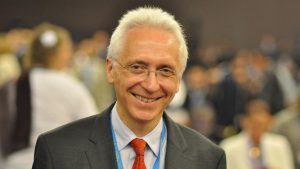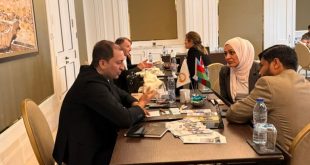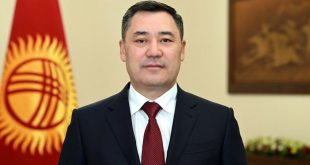
Azerbaijan is a very active country in the International Telecommunication Union (ITU) and is respected for its activities in the union, François Rancy, director of ITU Radiocommunication Bureau, told Trend.
Speaking of the broadcasting services of the ITU member countries, Rancy said that to use a frequency band, the countries have to agree upon it.
“Azerbaijan needs to have an agreement with neighbors in order to use the 694-790 MHz frequency band for mobile. The discussions in this direction have been started. We held several meetings. We see that all CIS countries have recently agreed to start the discussions to use 694-790 MHz for mobile,” he stressed.
Answering the question if ITU has the legal mechanisms to resolve conflict issues related to TV broadcast intrusion, Rancy noted that the ITU can only coordinate the meetings between the interested parties.
“The ITU can propose solutions, but can not enforce to do something,” the director said.
Azerbaijan has been elected to the Radio Regulations Board (RRB) of the ITU for the group of countries in the region C (Eastern Europe and Northern Asia).
The elections were held as part of the ITU plenipotentiary conference in October in Dubai.
Elections to the RRB were held for five regions. Azerbaijan entered the Council with 119 votes. Along with Azerbaijan, Romania (137 votes), Russia (136 votes), Poland (125 votes) and the Czech Republic (112 votes) also entered the ITU Council.
The Plenipotentiary Conference is convened once every four years and is administered by the Governing Body. The conference is a supreme ITU body responsible for developing the organization’s future policy.
The general policy is determined during the conference, also the four-year strategic and financial plans are adopted, and the organization’s top management, the members of the Council and the Radio Regulations Board are elected.
ITU is the United Nations specialized agency for information and communication technologies – ICTs. It allocates global radio spectrum and satellite orbits, develops the technical standards that ensure networks and technologies seamlessly interconnect and strives to improve access to ICTs to underserved communities worldwide.
 Oval Useful news from Azerbaijan and Caucasus
Oval Useful news from Azerbaijan and Caucasus


